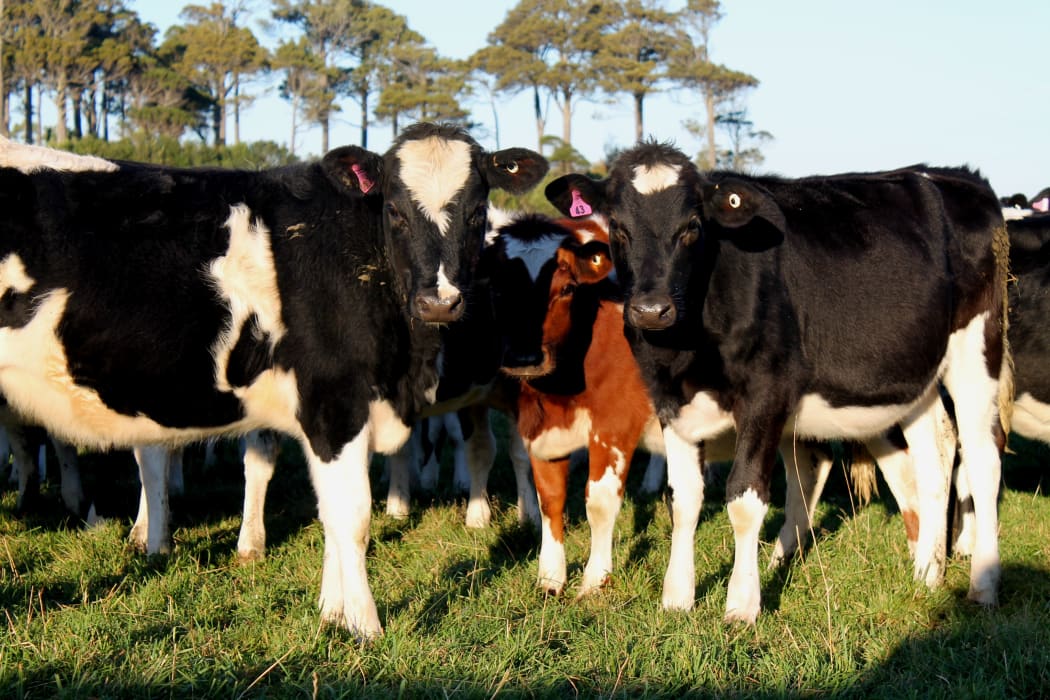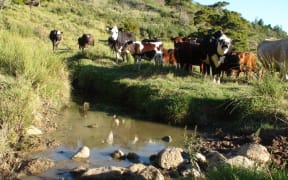The dairy downturn has cost DairyNZ about $1 million of farmer levy revenue in the past year due to a drop in milk production.

Photo: RNZ / Cosmo Kentish-Barnes
The dairy industry body collects a levy from farmers of 3.6 cents per kgm, and about $67 million is usually collected yearly.
The ABC has reported that Dairy Australia's revenue dropped by 12 percent because of sudden milk price cuts in the past two months, and it could not rule out job cuts.
DairyNZ's chief executive Tim Mackle said New Zealand production was not as hard hit as Australia because price cuts had taken about 24 months to drop instead of a couple of months.
He said milk production in New Zealand fell 1.5 percent in the 2015/16 season, which is about $1 million in DairyNZ levy revenue.
"Most people predicted we would have had a bigger drop than 1.5 to 2 percent down on milk volume but for many farmers it's been a pretty good growing season, particularly post Christmas.

Tim Mackle, the Chief Executive of DairyNZ. Photo: RNZ / Robin Martin
"We haven't seen the drop that maybe people might have thought and I believe that that's because farmers have done a better job of growing more grass and utilising it better."
Mr Mackle said at this stage job cuts were not expected.
"It's more about not replacing people who leave and that's the easiest way at those levels."
He said farmers have asked for the levies to be lowered, and the DairyNZ board is considering that and will keep considering it in the future.
However he said a lot of the money was pre-commited in long term contracts, particularly in research and development.
Mr Mackle said production in the coming season was expected to drop further.
"It's always difficult to predict, what we do know is that cow numbers are down, the culling rates have been higher in the last couple of years, but really we're probably looking at somewhere between two and possibly 5 percent down on production."
However, Mr Mackle said it was dependent on weather and growing conditions.



